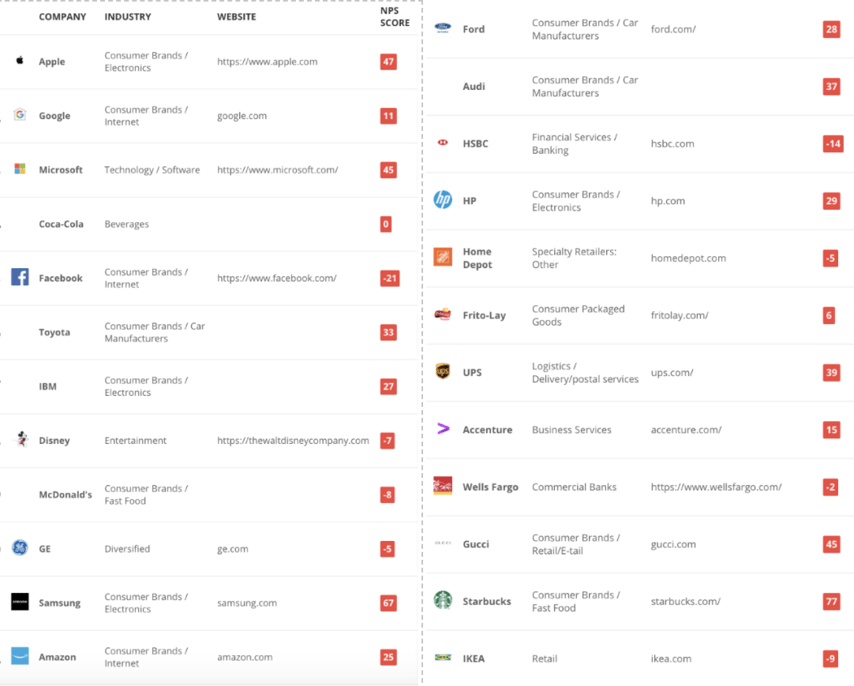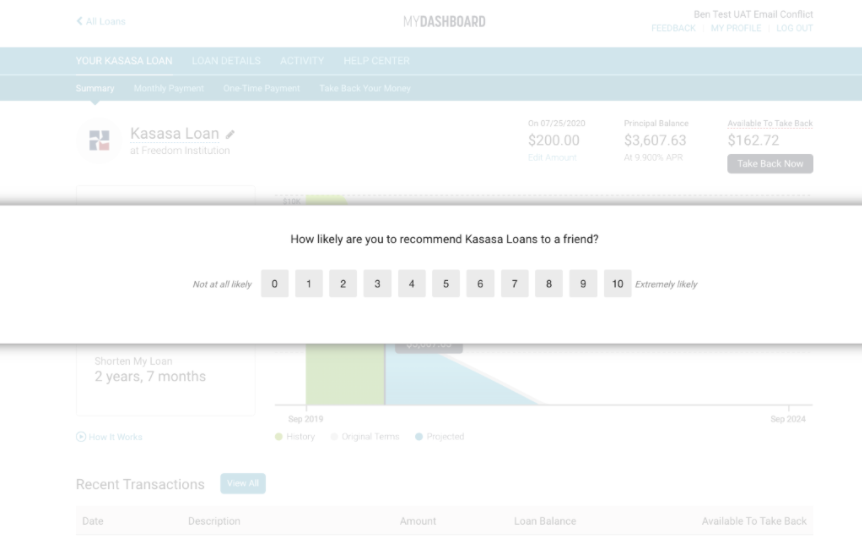“On a scale of 0 to 10, how likely is it that you would recommend our company/product/service to a friend or colleague?”
This simple question determines the Net Promoter Score (NPS) for all businesses, including community financial institutions. Developed in 2003 by Satmetrix, Fred Reichheld, and Bain & Company, it’s a metric for determining how loyal a brand’s consumers really are.
In the last 17 years, the explosion of social media has made this score even more vital for companies in all different sectors. It’s now easier than ever for regular customers to become brand advocates, spreading the word about an organization or its products through hundreds, sometimes thousands, of people in their online communities. On the flip side, it’s now also just as easy for them to tarnish the name of a company or brand, so having and maintaining a good NPS is important.
How do you I calculate my Net Promoter Score?
Administering an NPS survey is easy enough. Start by asking your account holders to fill out a survey for the question above. This can be done through email, in person, or even through your online banking platform or mobile banking app. As you gather responses, you can begin calculating your NPS.
The 0-10 scale works by segmenting consumers into three categories:
-
Promoters – 9 or 10 rating
-
Passives – 7 or 8 rating
-
Detractors – 0 through 6 rating
Determine how many responses fall in each category. Next, subtract the percentage of Detractors from Promoters to yield your NPS, which can range from -100 (if all customers are Detractors) to 100 (if all customers are Promoters). It’s that simple.
You might think all successful companies would have a 100 NPS or close to it, but that’s definitely not the case. Here’s a quick view of the NPS scores of some of the most popular companies in the world:

Image courtesy of Customer Guru.
How can I use the segmentation determined by my Net Promoter Score?
Regardless of your score, segmenting your existing consumer base into these buckets is powerful and can help you as you market to them or interact with them in the future.
Detractors are in the danger zone and at risk of leaving your institution (and worse, damaging your brand’s reputation). They're 2.3 times more likely to switch to another financial institution compared to Promoters. Going on the offensive with a special offer email or extra care in your dealings with them can help you salvage the relationship before it ends.
Passives are considered satisfied but essentially indifferent to your institution. They may be just as likely to head to greener pastures if they get an enticing offer from your competitor (i.e. a lower loan rate or higher savings rate). Offering preemptive rate matching with these kinds of consumers could be a smart idea.
Finally, there are your Promoters. The people who say they’d be an advocate for your institution’s growth. These are the holy grail of NPS and offering loyalty rewards to these types of consumers can be a great way to retain and grow your relationships with them.
Do Net Promoter Scores really matter?
Arguments against the NPS have been made pretty much since it was introduced. The survey essentially asks whether a consumer will be an advocate for your institution. Some marketers take issue with the fact that even the most seemingly loyal of consumers may not put that into action.
Yet this objection ignores some crucial data about the NPS. Research shows that the lifetime value of a Promoter is 2.5 times higher than that of a detractor. What’s more, financial institutions with a score higher than 60 will see a 26% greater level of growth in operating income, compared to those institutions that score below 60.
Based on this data, the NPS is a reliable predictor of future profitability. Getting a referral or brand advocate who will tout you on social media is a nice bonus, but don’t forget that a consumer’s single biggest value comes in the form of their own relationship with your institution.
Other critics have pointed out that the flaw of NPS is the fact that it counts consumers who put a score of 9 as Promoters, yet research shows that people who give a 9 rating are actually indifferent to their institution. While 62% of people who rate their institution a 10 are fully engaged, only 13% who rate it a 9 are. That’s a huge jump and could hurt your bottom line if you’re inflating your NPS with consumers who may not actually be loyalists, so it’s an important distinction to watch out for.
What does it take to increase a Net Promoter Score?
If the companies’ scores above are any indication, achieving a high NPS is not easy.
Today's consumers demand better products and a seamless experience. If you’re looking to increase your score, it boils down to offering products people can’t get just anywhere and that truly meet their needs — plus a consumer experience that fits seamlessly into their lives.
For example, with the Kasasa Loan®, we’ve consistently seen Net Promoter Scores at 70 or above, with one institution raising theirs to 75. Offering a product feature that borrowers can’t get anywhere else (the Take-Back®) and a digital dashboard that makes managing their loan easy fulfills consumers’ needs and provides the “wow” experience that they’re looking for.
Most companies don’t even come close to those scores. Out of the companies listed above, only one fairs better in the consumer love department: Starbucks® with an NPS of 77. A loan that consumers love as much as their favorite cup of coffee? That’s pretty badass.

The Kasasa Loan dashboard makes it easy to determine Net Promoter Score with a built-in survey.
Consumer loyalty is important. And consumer advocacy can be even more beneficial for your institution. Either way, the Net Promoter Score gives you a good indication of how your bank or credit union is doing when it comes to meeting consumers’ needs. It can also help you determine the lifetime values of your existing base and offer them what they need before they have to ask.
Struggling with your community bank or credit union’s Net Promoter Score? Reach out to your Client Success Manager directly (or if you’re not currently a Kasasa client, contact us here). We’d love to help you with strategies for increasing your consumer loyalty.



